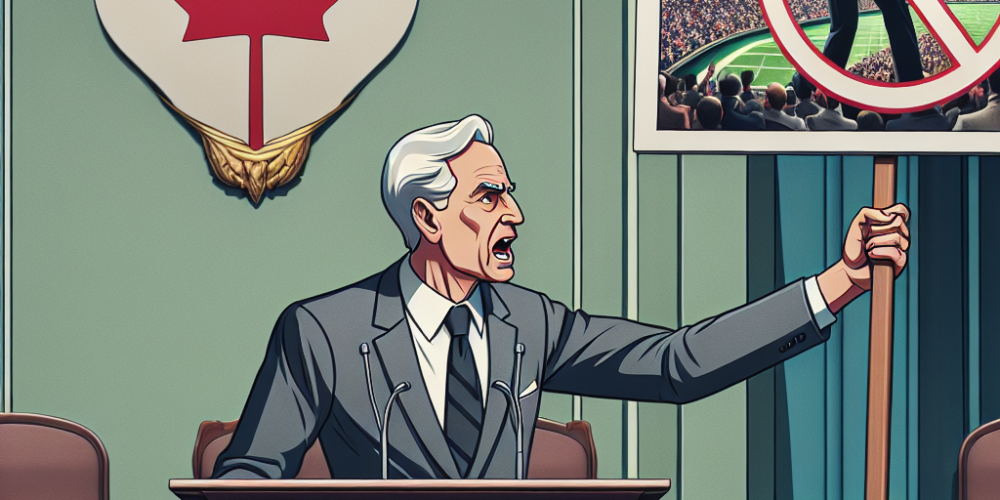On September 11, 2025, Senator Marty Deacon expressed his strong belief that sports betting advertisements are causing societal harm, particularly among young people. He aims to see his proposed legislation, Bill S-211, enacted to address this issue.
The bill seeks to prohibit all sports betting commercials, whether they appear during broadcasts, in physical locations, or online platforms. Senator Deacon argues that while significant efforts have been made to legalize and regulate sports gambling, not enough focus has been given to protecting the public from the potential harms of pervasive advertising.
Senator Deacon’s proposal draws inspiration from similar successful legislation in other countries. One of the key elements of the bill is to ban the use of celebrities and athletes in gambling advertisements. He believes this measure will help reduce the influence these ads have on young individuals.
Furthermore, the bill calls for stricter regulations on when and where gambling ads can be shown, including a complete ban on broadcasting them during certain times. Senator Deacon emphasizes the need for a cohesive national response to gambling advertisements, arguing that a unified standard is necessary, similar to the regulations for alcohol and tobacco advertising. He insists that the government should lead these efforts to ensure consistency and effectiveness.
Concerns about the impact of gambling ads on young people are echoed by others in the medical and scientific community. Dr. Shannon Charlebois from the Canadian Medical Association Journal highlights the growing evidence that these ads are detrimental. She points out that many young people, particularly boys aged 13 or 14, have been reported to engage in online gambling using their parents’ credit cards, often resulting in significant financial losses.
Dr. Charlebois warns that the normalization of gambling through ads is particularly dangerous for children, as it presents risky behavior as acceptable and appealing. She notes that youth, who are genetically and biologically inclined to engage in risk-taking behaviors, are especially vulnerable to these influences.
Senator Deacon shares these concerns and argues that the easy access to gambling through smartphones, combined with enticing advertising incentives, poses a significant threat that needs to be addressed with urgency. He believes legislative action is required to mitigate the societal harms resulting from this environment.
However, not everyone agrees with a complete ban on gambling advertisements. Some industry experts argue that such a move could have unintended economic consequences. The gambling industry contributes significantly to the economy, providing jobs and generating substantial tax revenue. They believe that instead of an outright ban, more balanced regulations could be implemented to mitigate harm while preserving economic benefits.
Critics of the ban also point out that gambling is a legal activity, and businesses should have the right to advertise their services within reasonable boundaries. They suggest that consumer education and responsible gambling initiatives could be more effective in addressing the issues related to gambling advertisements, without resorting to prohibitive measures.
Despite these opposing views, Senator Deacon remains steadfast in his conviction that stronger regulations are necessary to protect young people and society at large from the potential harms of gambling advertisements. He believes that by restricting these ads, particularly those that target impressionable youth, the government can play a critical role in safeguarding public health and well-being.
As the debate continues, the future of sports gambling advertisements in Canada hangs in the balance. The decision will likely impact not only the gambling industry but also the broader societal approach to managing the influences of advertising and protecting vulnerable populations.

David Garato is a luminary in gaming journalism, renowned for peeling back the curtain on the gaming world with his witty and insightful commentary. A decade into weaving stories from the pixelated edges of indie games to the expansive universes of AAA titles, David’s work is a thrilling blend of analysis and adventure. When not writing, he’s live-streaming, sharing his gaming exploits with an engaged and growing audience. David doesn’t just write about games; he lives them, making him a trusted guide in the gaming community.
















